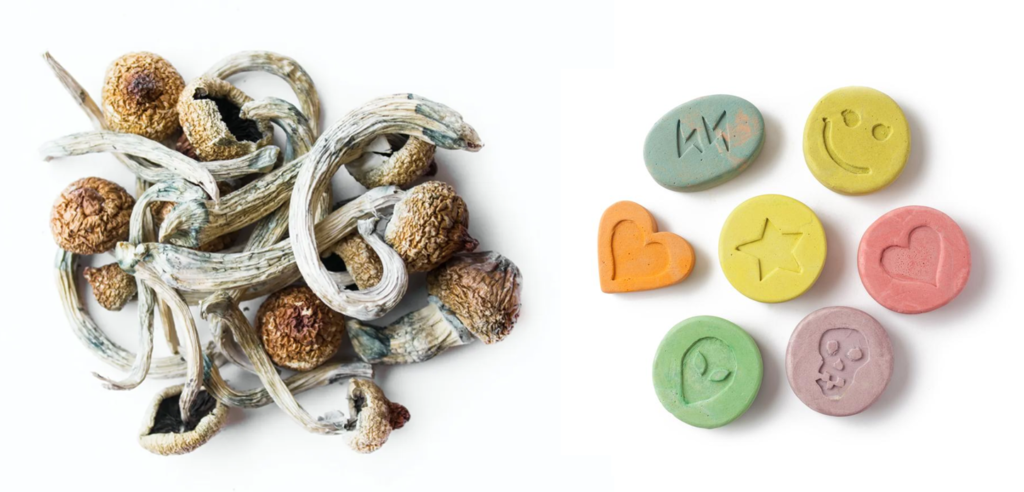Psychedelics, particularly psilocybin and MDMA, may be a useful tool in combatting prolonged grief disorder, according to a new study conducted by researchers from Johns Hopkins University School of Medicine and the University of Virginia.

Dried psilocybin (left), and MDMA tablets (right).
“Prolonged Grief Disorder (PGD) is distinct from yet related to non-pathologic grief, depression, addiction, and Post-Traumatic Stress Disorder (PTSD) with a prevalence of up to 10% in bereaved populations”, states the study, published by the journal International Review of Psychiatry.
The study states that “Hallmarks of PGD include functional impairment a year or more post-bereavement and intense yearning for the deceased. Current treatments for PGD are typically psychological rather than psychopharmacological, and more treatment options are needed.”
Researchers claim that “Psychedelics such as psilocybin and MDMA may be a promising treatment avenue for PGD. Randomized clinical trials demonstrated the efficacy of psilocybin in reducing symptom severity in depression and MDMA in reducing PTSD symptomatology.”
Furthermore, the study states that “psychedelics often produce subjective effects (such as transcendence, mystical experiences, and a sense of oneness) that may be uniquely relevant to the existential distress experienced in PGD.”
Researchers note that no randomized clinical trials have thus far been conducted on the safety and efficacy of psychedelics for PGD. However, “Initial research, including survey-based studies and an open-label trial, has begun to shed light on the possible benefits of psychedelics in the alleviation of grief.”
The study concludes by stating:
While the evidence from these studies is preliminary, it suggests a consistent trend towards the effectiveness of psychedelics in grief reduction. Conducting a randomized clinical trial would be an appropriate next step to explore the potential efficacy of using psychedelics to treat PGD.






